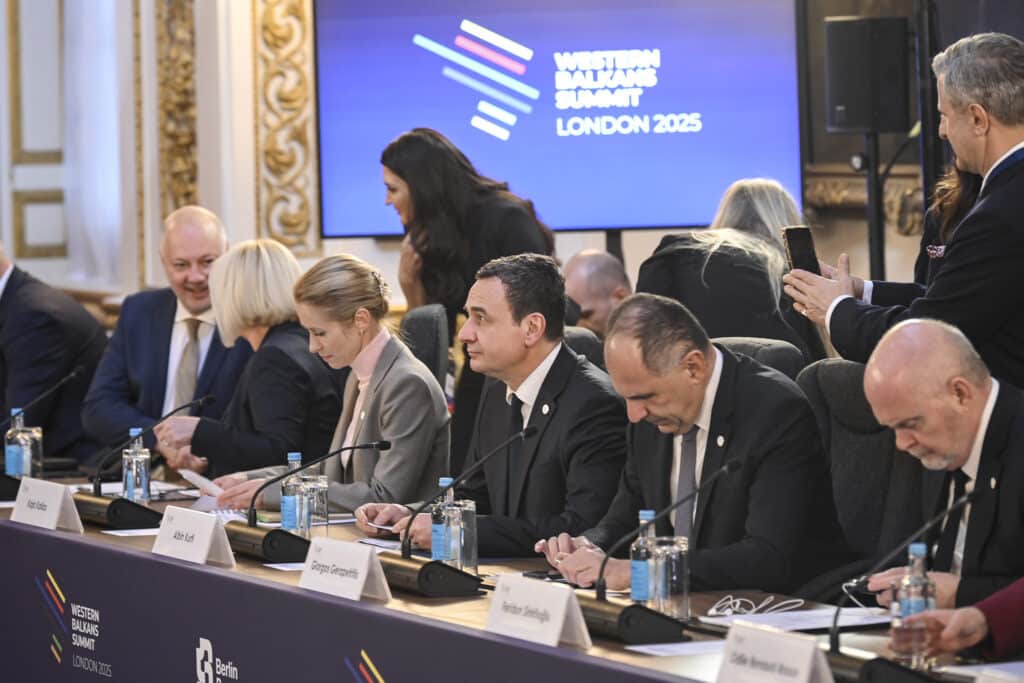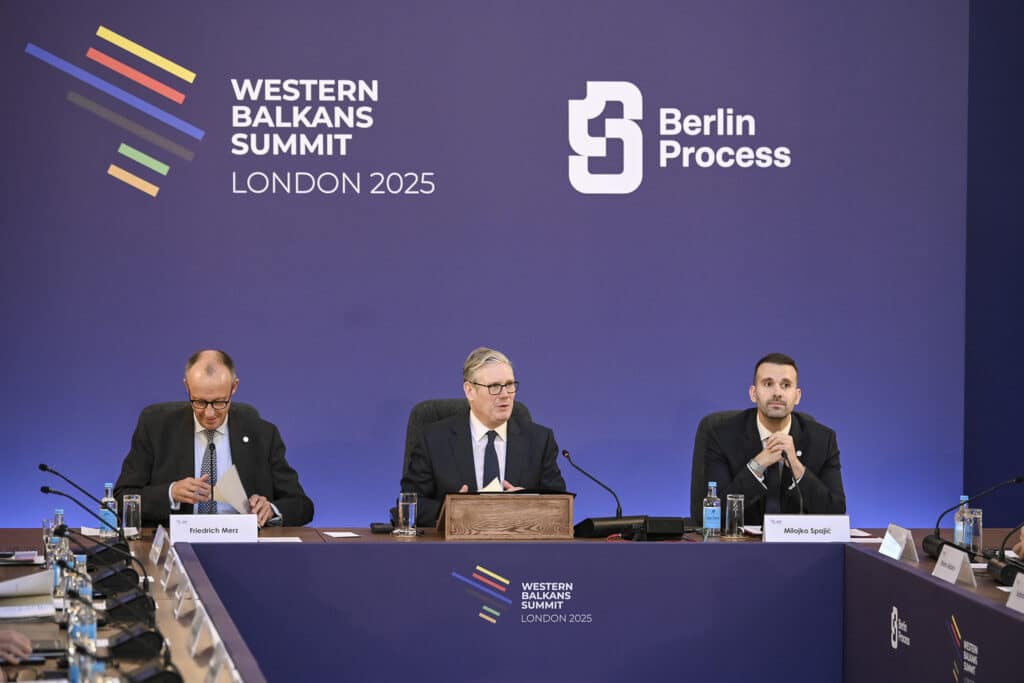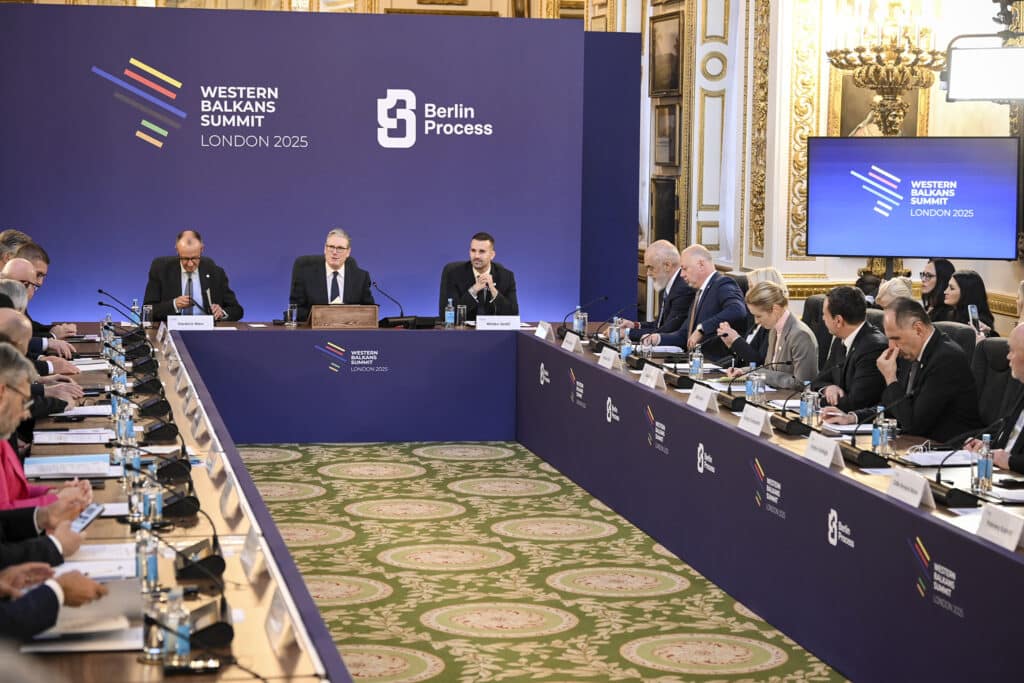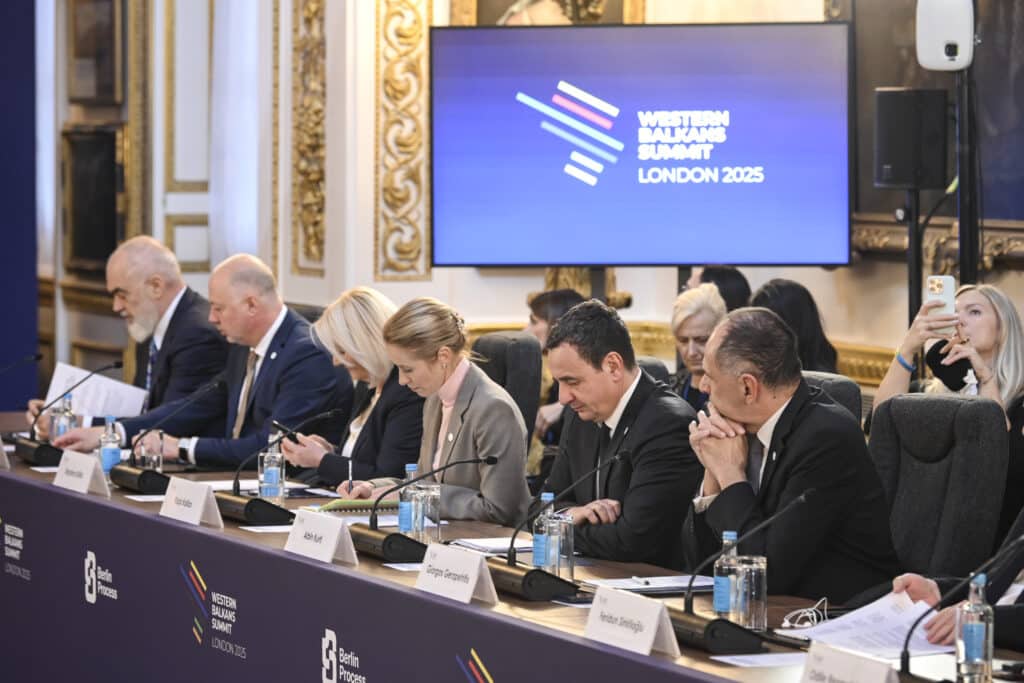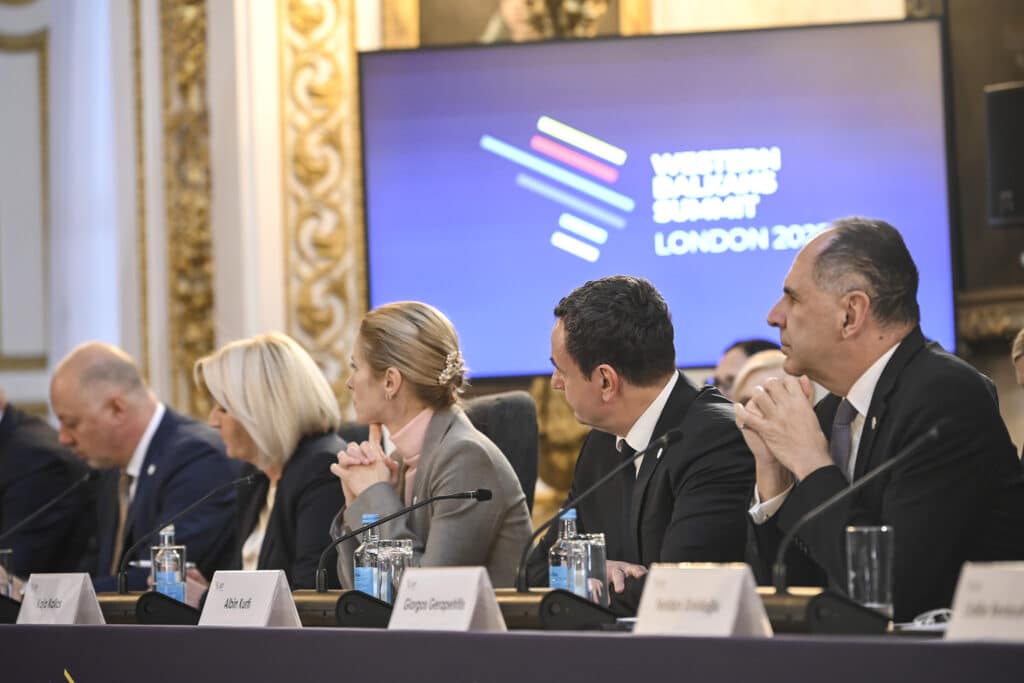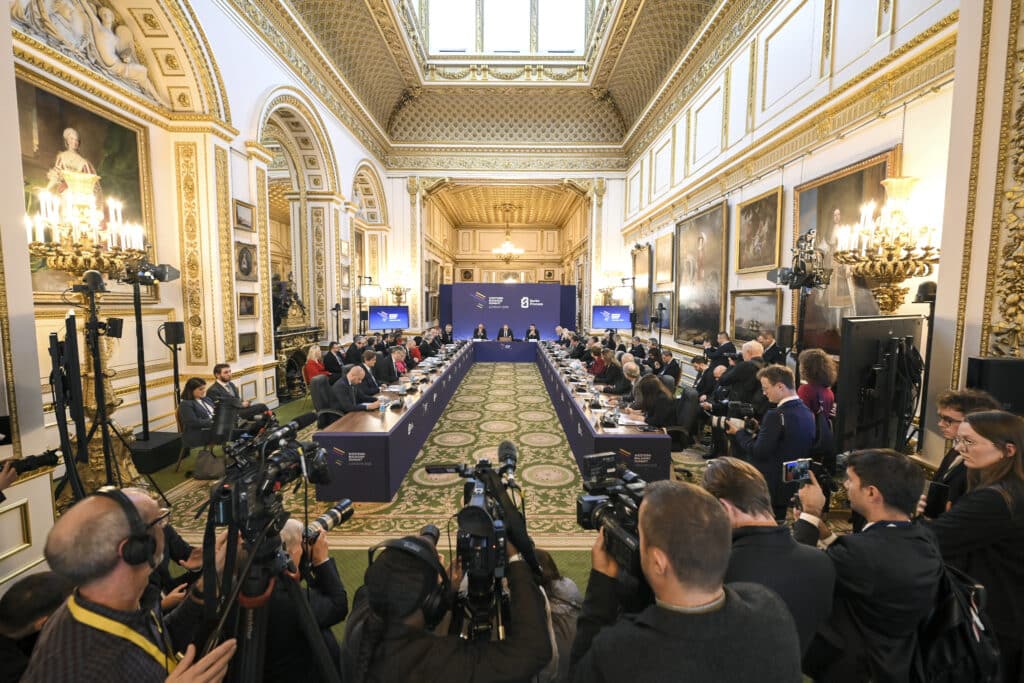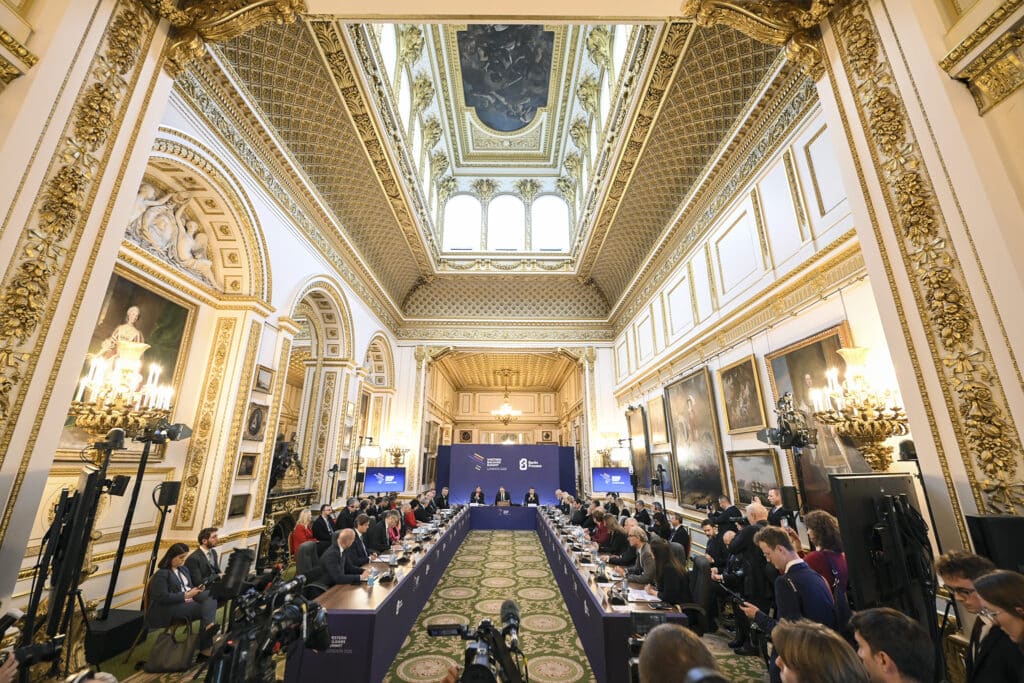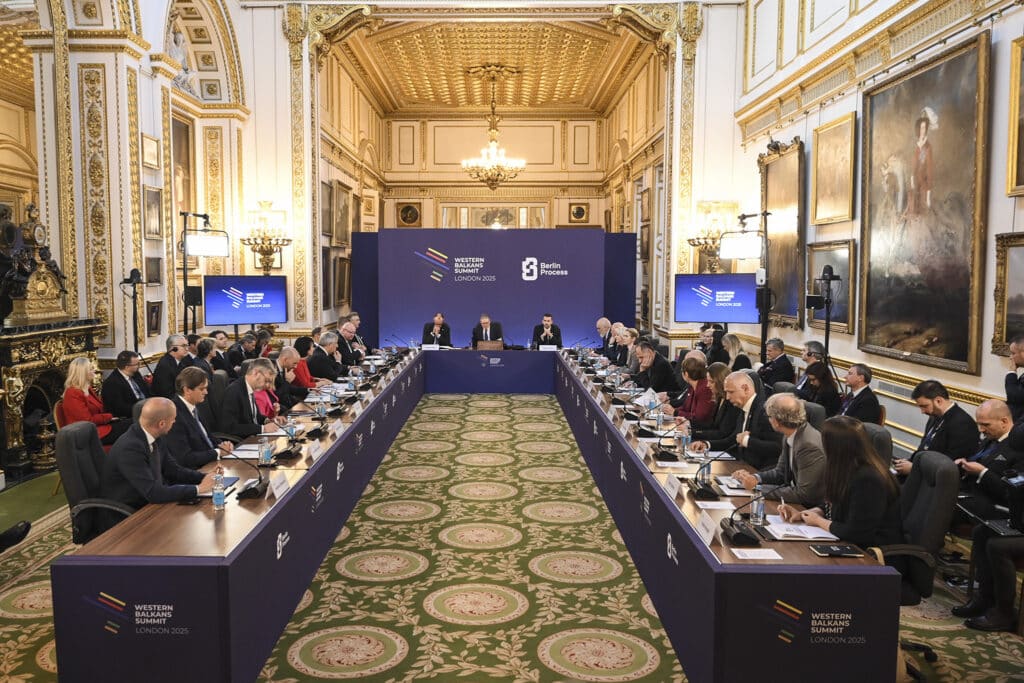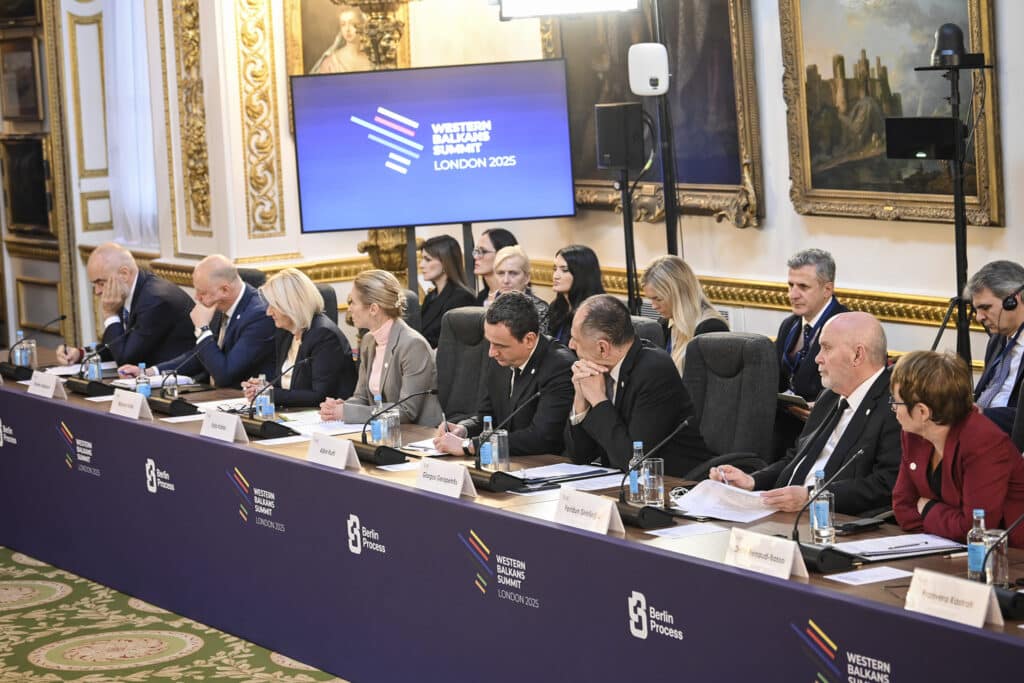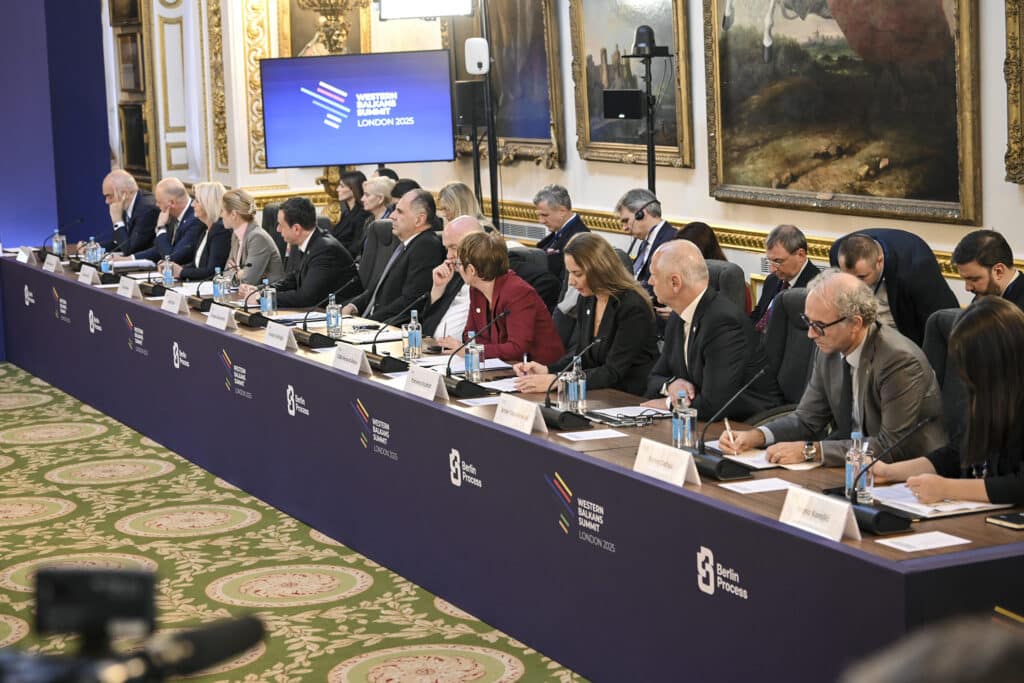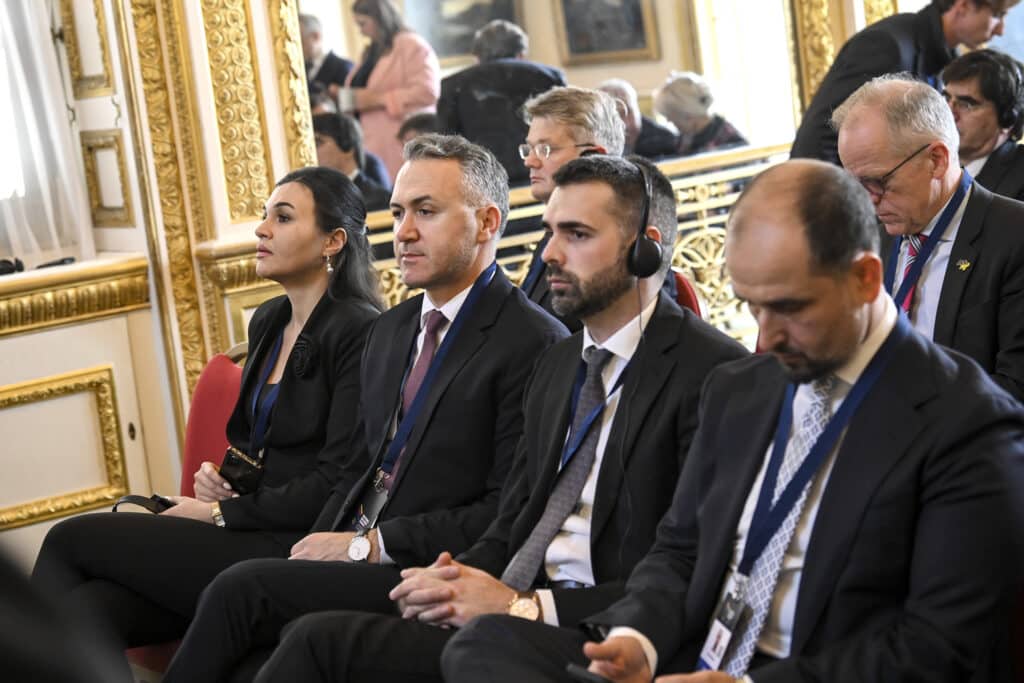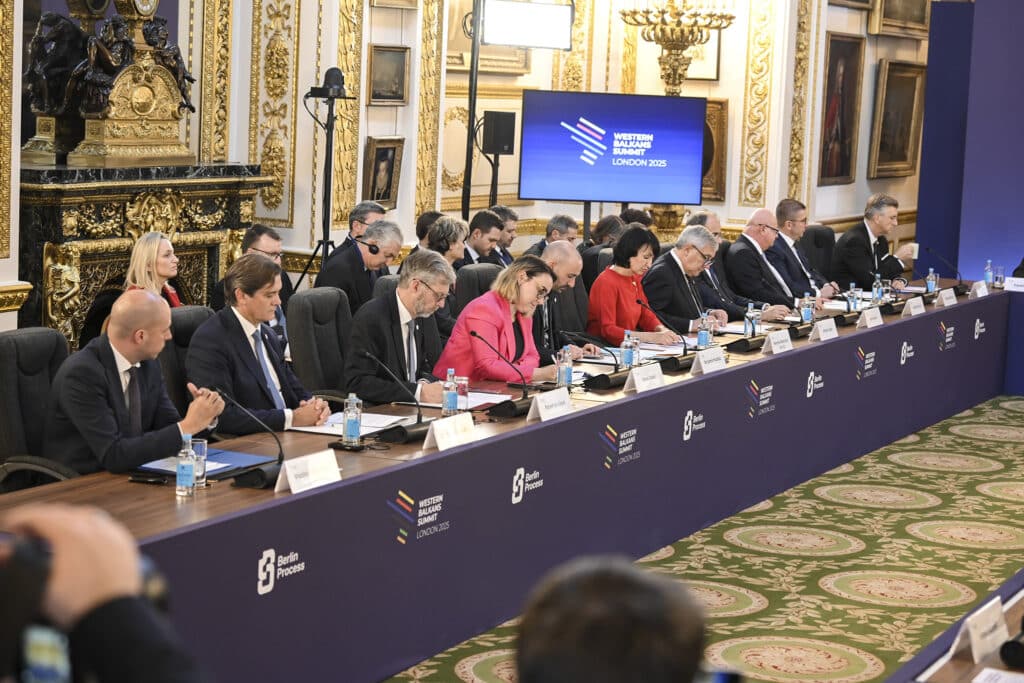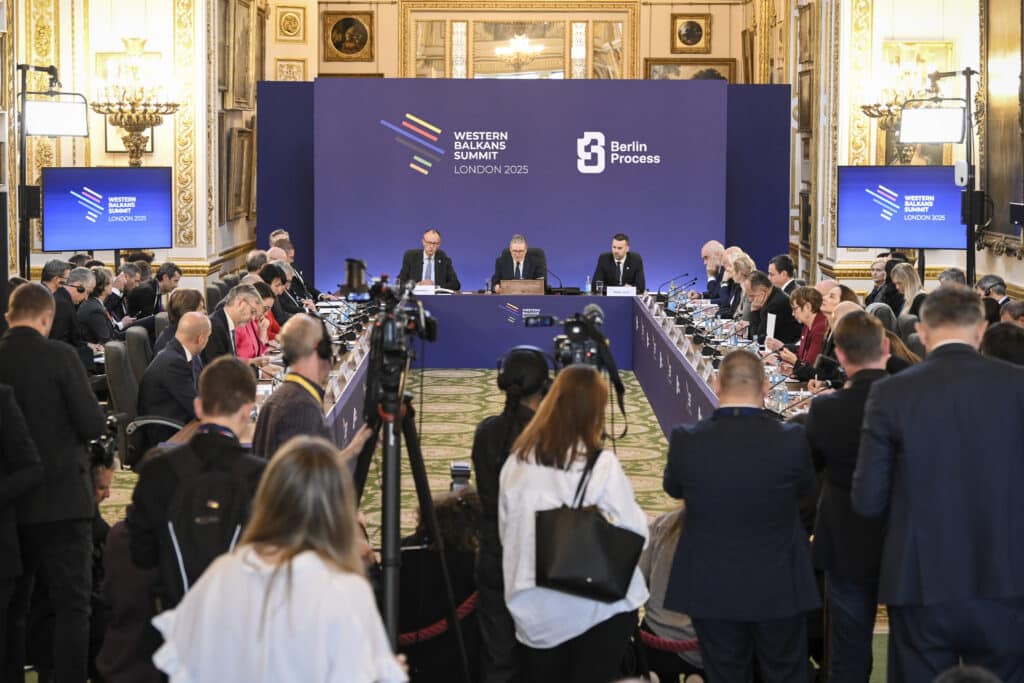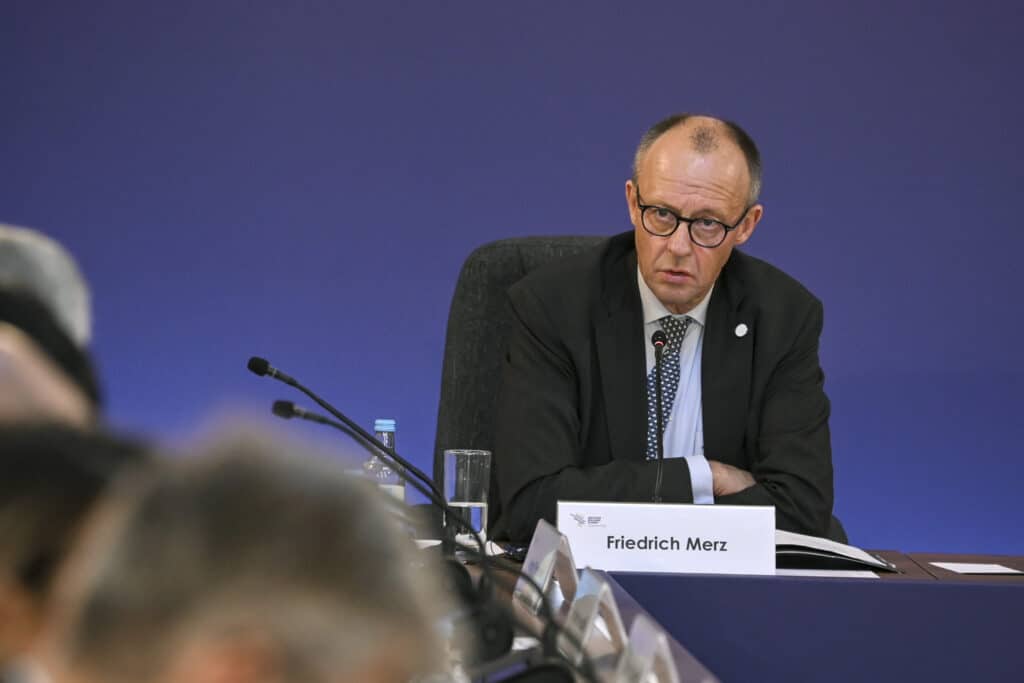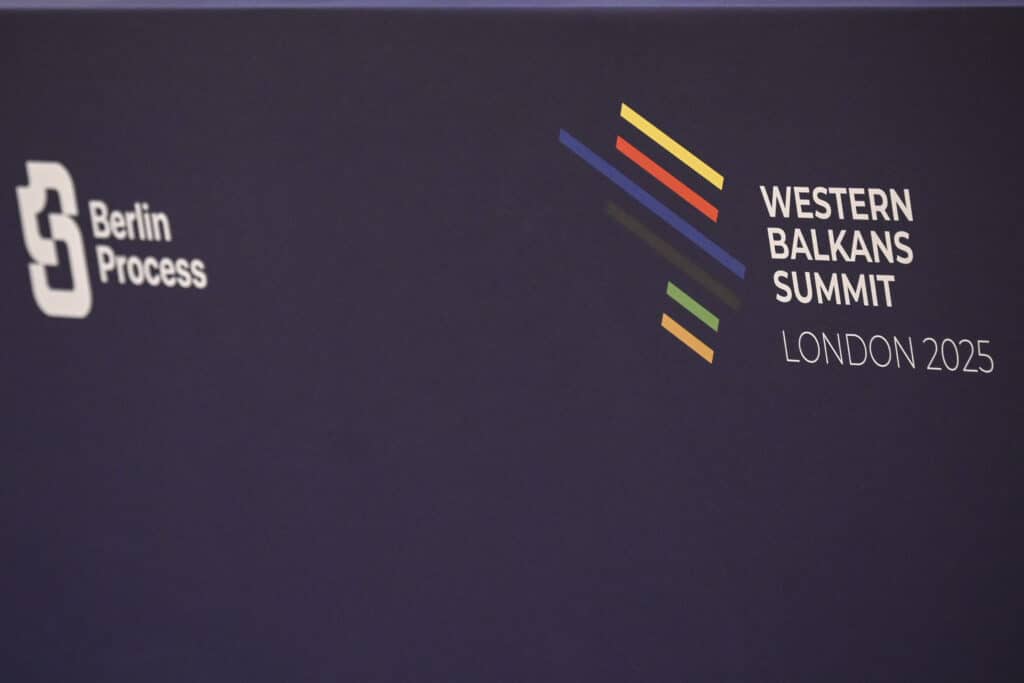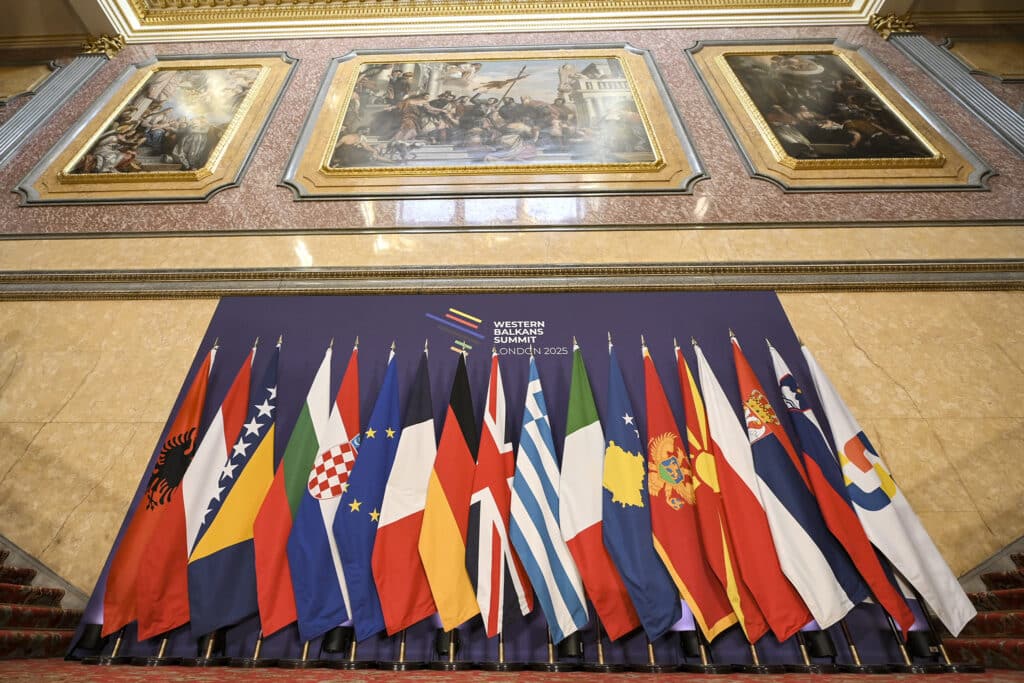London, 22 October 2025
The acting Prime Minister of the Republic of Kosova, Albin Kurti, delivered a speech at the first session of the Berlin Process Summit, which is being held in London, where state leaders from EU member states and the region were present.
Prime Minister Kurti’s speech at the 12th Berlin Process Summit:
Dear Prime Minister Starmer,
Thank you for hosting us in this great house, where nations have often gathered to shape their future.
Dear Chancellor Merz,
Dear colleagues and friends from the European Union and Western Balkans,
We meet at a time when Europe is so prosperous but has also never been so attacked.
The rising threat of authoritarianism both outside and inside our continent is a challenge Europe knows all too well.
As we mark 80 years since the end of the Second World War and 75 years of the European Convention on Human Rights, we are reminded that peace, freedom, and human dignity are never guaranteed – they must be continually defended and renewed by every generation.
Therefore, we need a strong sense of unity, resilient enough to withstand both external pressures and internal doubts.
Such unity must be extended to the southeast of our continent. The Western Balkans lies geographically within the borders of the EU and NATO, yet all countries remain outside of the EU and half remain outside NATO treaties. This is neither wise nor sustainable. In order to contain Russian or Chinese influence in Europe we should not leave any vacuum whatsoever.
When the European Commission shut down enlargement in 2014, Berlin stepped up, coining Western Balkans Six through the Berlin Process to keep our region close to the EU. Today, when we have war in Europe out of Russian aggression in Ukraine, London could help very much by supporting the Western Balkan countries that want to join NATO to do so, thus closing this dangerous security gap. We have shared goals and shared values and have no alternative to EU and NATO membership, and these should be seen as strong points.
In the last five years, Kosova has made the fastest progress in democratic, economic, and security indicators. We have had an average of 6%, and never below 4% in economic growth. Three months ago, the World Bank and IMF removed Kosova from their Fragile and Conflict-Affected lists, recognizing our strengthened resilience, stability, and good governance.
Yet our progress remains shadowed by the continuous threats and aggression from our northern neighbor. The Banjska terrorist attack cannot be ignored. Milan Radoičić has admitted responsibility, yet justice has not been served. Our hostile northern neighbor must not be allowed to act with impunity since this emboldens new incursions and sends a dangerous signal that attacks on Kosova’s state sovereignty and territorial integrity will go unpunished.
On Growth, Kosova supports the Common Regional Market and the Green Agenda as frameworks for responsible growth. But more funding is needed to close the convergence gap in core infrastructure projects, including the green transition, and also to reduce inequality with more solidarity.
Since the last summit we signed a new trade agreement with EFTA members, in January this year at WEF in Davos, including goods and services, thus expanding our markets. On our first direct chairing of CEFTA we restored its functionality by selecting a new director, who had been blocked for more than two years.
On migration, we have pledged to the UK to tackle the drivers of instability: strengthening border security, fighting organized crime, combating illicit finance, and helping to manage migration flow. We have been seriously engaged in combating small arms and light weapons which are exploited by non-state actors but also used as tactics of destabilization by malign state actors alike. Kosova is not a source of migration but merely a transit point in relatively very low numbers.
Thank you.
Closing remarks:
We have signed five agreements so far in the Berlin Process. Those agreements must be implemented to enable mobility and growth. We made great efforts this year under the UK’s chairmanship of the Berlin Process to unblock the agreement on mutual recognition of Higher
Education Institutions.
Unfortunately, our proactive engagement was not matched by those who prefer the status quo. Yet the status quo will not stand.
It is also unfortunate that Bosnia and Herzegovina still blocks the basic agreement on
freedom of movement, despite our decision to enable free movement with ID for Bosnia and Herzegovina citizens.
I commend this year’s deliverables which aim to further deepen the CRM in sustainable finance, investment, green industry, tourism, and portability of social rights. And I thank the United Kingdom for hosting this year’s Berlin Process Summit.
